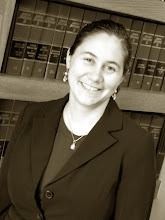
One of the most frustrating tasks facing a property manager is getting rid of a tenant. The eviction process is long, convoluted, and frustrating enough to get someone to reconsider their chosen profession.
Through training, experience and working with competent counsel it is usually not a problem to evict someone. However, today we are going to address the intersection of bankruptcy and eviction …the True Twilight Zone.
When a tenant files a Bankruptcy Petition, he or she is immediately protected by the “automatic stay” of the United States Bankruptcy Code. This protection arises from an Order that is issued by the Court upon filing of the Petition. All entities (creditors, landlords, utility companies, etc.) are prohibited from engaging in any act to collect, assess, or recover pre-Petition claims against the debtor.
As a property manager, you can do absolutely nothing to collect rent arrearages, surcharges or damages. You may not initiate a collection action through Small Claims or otherwise. You are not allowed to even send a letter or have a polite conversation about any money owing from the past.
Until October of 2005, property managers were even prohibited from proceeding with an eviction that had already been started. This is no longer true. The Bankruptcy Code now permits a landlord to continue to pursue the eviction of a debtor who is a residential tenant if the landlord has already obtained a Writ of Possession prior to filing of the Bankruptcy Petition.
If Judgment has been entered prior to the date the tenant filed his Bankruptcy Petition, but a Writ of Possession has not yet been issued, the process can still move ahead. Unless an appeal has been filed, the Writ of Possession will be issued by the Clerk as originally ordered by the Court.
As with all things related to evictions (and bankruptcy), the process can become more complicated. If the tenant/debtor either asserts a legitimate defense or a right to reinstate the lease under State law, the Writ of Possession can be held up if the tenant deposits with the Clerk of the Bankruptcy Court any rent that would become due within thirty (30) days after filing the Bankruptcy Petition. In order to pull this rabbit out of his hat, the tenant must file a Certificate indicating that “there are circumstances under which the debtor would be permitted to cure the entire monetary default that gave rise to the judgment for possession, after that judgment for possession was entered …and the debtor …has deposited with the Clerk of Court, any rent that would become due during the thirty-day period after the filing of the Bankruptcy Petition.”
In addition to complying with the requirement to file a Certificate at the time the Bankruptcy Petition is filed, the debtor must also file a second Certificate within thirty (30) days stating that he has paid the money owed pursuant to the tenancy.
If the landlord/property manager disagrees with the claims of the tenant, he can file an objection with the Bankruptcy Court and a hearing must be held within ten (10) days after the objection is filed.
There is a second exception to the automatic stay dealing with evictions based on “endangerment” or “illegal use of controlled substances”. The Bankruptcy Code allows a property manager to proceed with an eviction if it was started before the filing of the bankruptcy case or if the endangerment or illegal use occurred within thirty (30) days before the bankruptcy filing. In either situation, the property manager would be required to file with the Court and serve on the debtor a Certificate setting out the facts giving rise to the exception.
Beyond all of these rules, and in addition to all of the exceptions, the property manager always has the ability to have his attorney file a Motion for Relief from Stay by which you ask the Court to allow you to proceed with an eviction, for good cause, despite the fact that a bankruptcy is pending.
“Good cause” for relief from the automatic stay exists when a property manager can prove that the debtor is significantly in default under a lease, or that the landlord lacks “adequate protection” to prevent future financial loss. Courts have ruled that non-payment of rent for an extended period of time fits within the definition of good cause. Failure to pay rent that is due after the filing date of the Bankruptcy Petition is a major factor the Courts will consider. Behavioral problems that disturb the peaceful and quiet enjoyment of other tenants or neighbors will also be a factor carefully considered by the Bankruptcy Court in determining whether an eviction should proceed or not.
Finally, it is important to keep in mind that the filing of a Bankruptcy Petition deals only with debt arising prior to filing date. Therefore, failure to pay rent subsequent to filing is not protected. Damage to the premises post-filing is not protected. These debts are non-dischargeable. They do not go away.
Log onto our website or blog for more information and articles about Landlord/Tenant issues and to order the updated versions of our “Landlord/Tenant” series of books.
Neil S. Shankman, Bankruptcy Attorney, Maine






